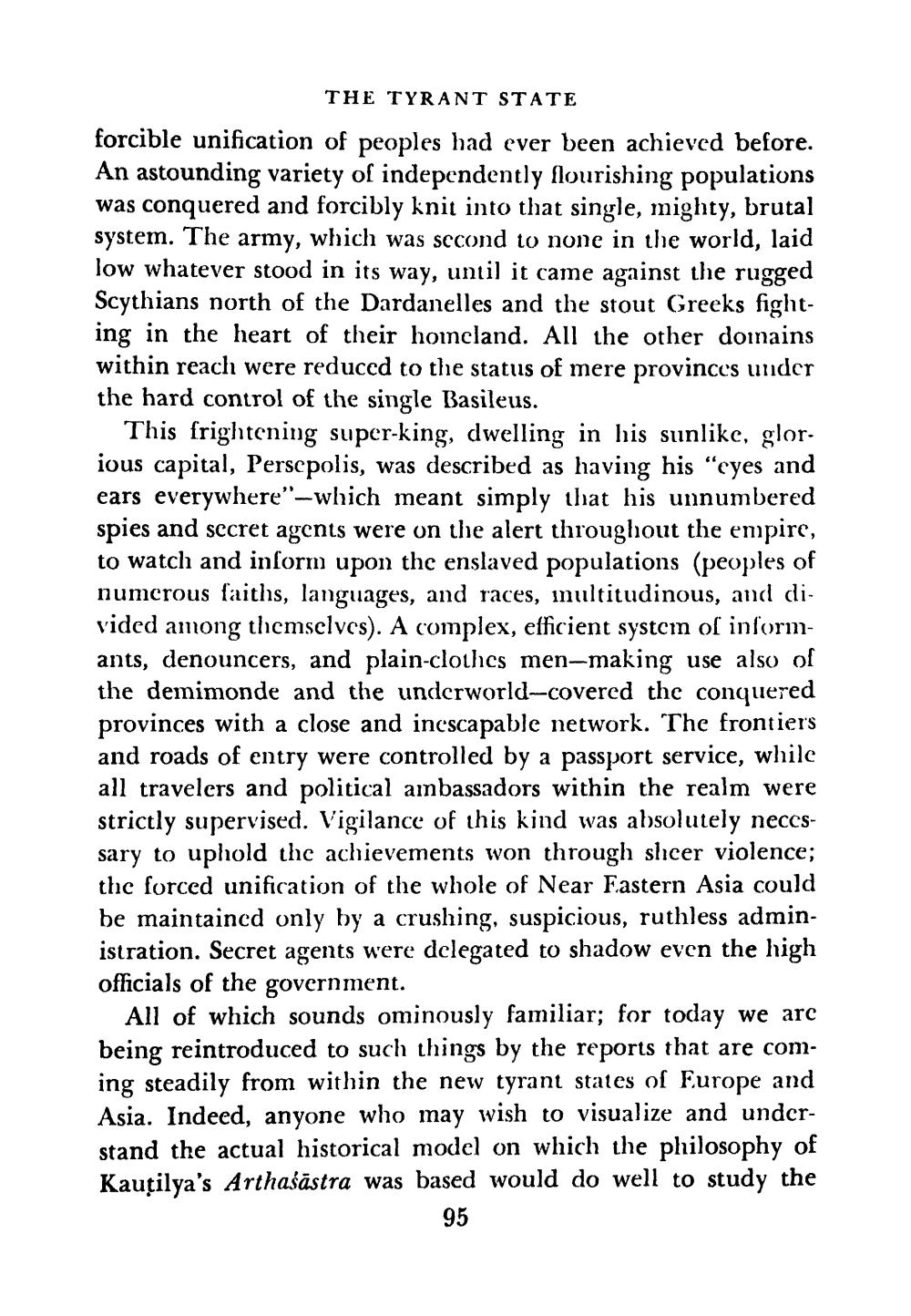________________
THE TYRANT STATE
forcible unification of peoples had ever been achieved before. An astounding variety of independently flourishing populations was conquered and forcibly knit into that single, mighty, brutal system. The army, which was second to none in the world, laid low whatever stood in its way, until it came against the rugged Scythians north of the Dardanelles and the stout Greeks fighting in the heart of their homeland. All the other domains within reach were reduced to the status of mere provinces under the hard control of the single Basileus.
This frightening super-king, dwelling in his sunlike, glorious capital, Persepolis, was described as having his "eyes and ears everywhere"-which meant simply that his unnumbered spies and secret agents were on the alert throughout the empire, to watch and inform upon the enslaved populations (peoples of numerous faiths, languages, and races, multitudinous, and divided among themselves). A complex, efficient system of informants, denouncers, and plain-clothes men-making use also of the demimonde and the underworld-covered the conquered provinces with a close and inescapable network. The frontiers and roads of entry were controlled by a passport service, while all travelers and political ambassadors within the realm were strictly supervised. Vigilance of this kind was absolutely neccssary to uphold the achievements won through sheer violence; the forced unification of the whole of Near Eastern Asia could be maintained only by a crushing, suspicious, ruthless administration. Secret agents were delegated to shadow even the high officials of the government.
All of which sounds ominously familiar; for today we are being reintroduced to such things by the reports that are coming steadily from within the new tyrant states of Europe and Asia. Indeed, anyone who may wish to visualize and understand the actual historical model on which the philosophy of Kautilya's Arthaśāstra was based would do well to study the
95




